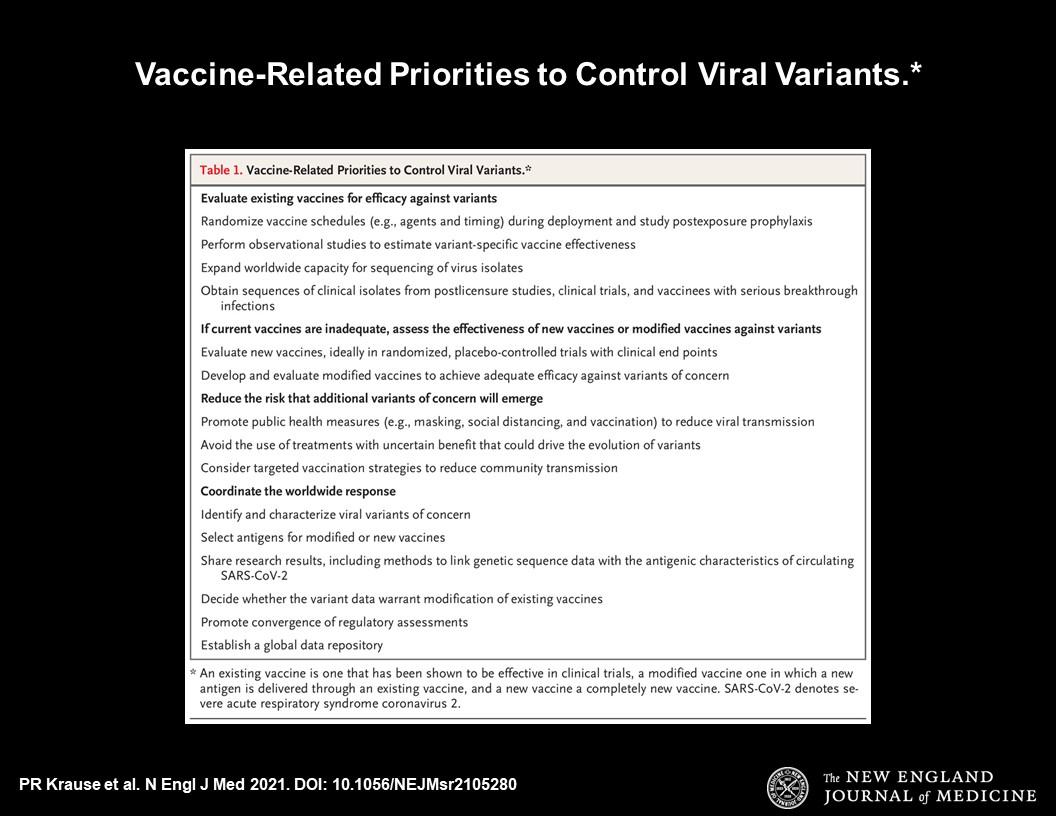COVID-19 variants continue to emerge, including some with increased transmissibility and severity, which has contributed in many countries to a reversal of decreasing COVID-19 case counts achieved earlier this year. A New England Journal of Medicine (NEJM) Special Report, just released, advocated for a global framework to monitor and evaluate these variants and to address the worldwide need for safe and effective vaccines.
The framework, which the World Health Organization (WHO) will continue to develop and improve, involves enhanced surveillance, research on variants of interest and variants of concern, and evaluation of the effect of variants on diagnostic tests, therapeutic agents, and vaccines. The four framework priorities are to:
- Evaluate existing vaccines for effectiveness against variants;
- Assess the effectiveness of new or modified vaccines against variants, should current vaccines become inadequate;
- Reduce the risk that additional variants of concern will emerge, and
- Coordinate a worldwide response
“Innovative strategies are needed to achieve timely and reliable evaluation of new or modified COVID-19 vaccines, as well as their timely distribution, to control viral variants in a manner that would benefit the entire world, not just the U.S. and other developed nations,” said Thomas Fleming, University of Washington professor of biostatistics and a report co-author.
“Developed nations have had the opportunity to participate in randomized placebo-controlled clinical endpoint vaccine trials and, in turn, these nations have received broad access to vaccines shown to be safe and effective. The rest of the world deserves that same opportunity for engagement in creatively designed vaccine studies and for corresponding access to vaccines with reliable evidence of efficacy and safety, where such efficacy would have been assessed in the context of whatever viral strains are circulating in their communities. Such strategies are necessary for effectively addressing a pandemic.”
